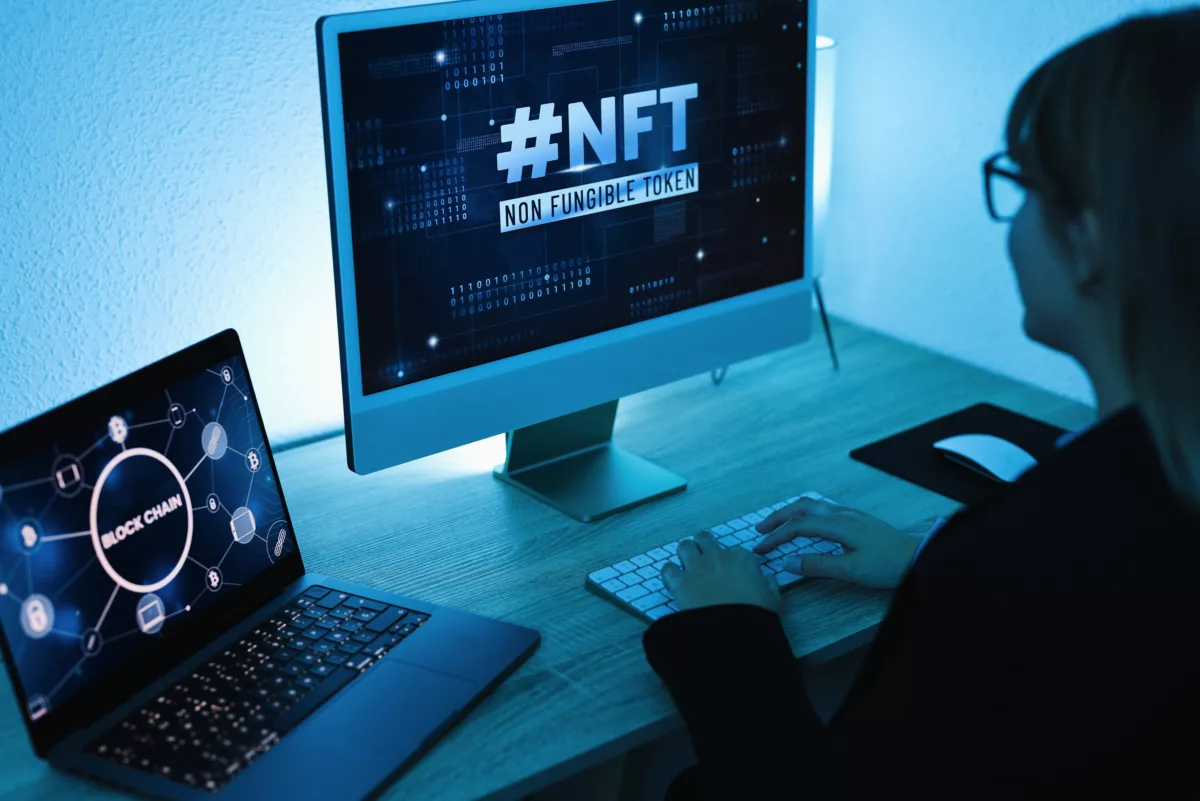Fungible tokens are increasing in popularity and are a ‘one-of-a-kind’ type of asset, that’s linked to a virtual or physical asset. In simple terms it’s a certificate of ownership, to things like money, shares and even goods that are easily exchangeable. In terms of digital assets, tokens such as Bitcoin or Ethereum are also fungible tokens. NFTs include goods that are not easily exchanged. The point is, NFTs are unique and often come with a value, due to amongst other factors, their uniqueness.
Digital NFTs are works created and stamped with their own inimitable digital signature. This is what it means when termed non-fungible. In other words they are so unique they cannot be interchanged.
What IP rights are acquired on the purchase of an NFT?
NFTs are digital assets containing metadata that define their own object. This could include the name given to the NFT and the smart contract address that regularises the transferability of the NFT.
What IP rights are not acquired on the purchase of an NFT?
There are other aspects of the NFT metadata that enthusiasts often assume come with the purchase of an NFT. The URL pointing to the image associated with the NFT or the artwork in the NFT are just two of many examples.
Most often though, owners of NFTs are not the owners of the IP rights in the image they link to. The owner instead has a claim to the NFT (meaning the digital asset token itself). The NFT declares you as the official owner of the link associated with the image featured.
NFT enthusiasts should be aware of what they are really buying. Projects can build hype through community forums pre and post minting collections and FOMO is a reality. Checking what IP rights (if any) come with your unique token before you buy is a must and if you’re not sure, please ask.
And of course, an enthusiast can download a copy of the image or link to the token linking the image.
Assignment IP rights
Transferring some of the aforementioned rights is possible but does require a formal assignment document to transfer such rights. As there are no IP rights in the NFT metadata, it is not a protected right per se. The NFT is not the image, or the original artwork or a copy of the image. The asset here is the token which includes a URL linked to said token which in turn creates a record of ownership of the token.
An assignment of rights is however possible and can be incorporated into the purchase contract of an NFT. Some artists and developers may want to give away some rights to add value, share others and / or keep the creative rights for themselves. All is possible!
In order to avoid any reputational harm developers should consider incorporating terms to clearly define what goes with the purchase of that project’s NFT.
A great example of a project that has incorporated the commercial rights in the NFT purchase are the Nakamigos*. This project provides for transparency and ease of transfer of the IP with sales in the future: https://opensea.io/collection/nakamigos
The UK Intellectual Property Office has guidance notes featured on their Practice Amendment Notice regarding classification of NFTs, virtual goods and services provided in the Metaverse in trade marks. The guidance is helpful as certain historic applications encountered issues when seeking clarity on how to approach the classification of an NFT in the metaverse. The guidance recognises that NFTs are in many ways an authentication tool for physical and virtual goods alike explaining that virtual clothing, digital are or artwork authenticated by NFTs would be accepted in certain class types. It recognises that it’s a fast-moving area of development and the guidance will likely be updated from time to time.
A full copy of the PAN notice can be accessed here: https://www.gov.uk/government/publications/practice-amendment-notice-223/pan-223-the-classification-of-non-fungible-tokens-nfts-virtual-goods-and-services-provided-in-the-metaverse
*we’ve cited this project as an example of the legal rights that can be baked into an NFT smart contract. Please note we have no affinity to the project nor do we promote it.

